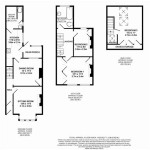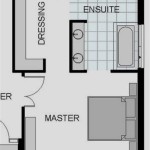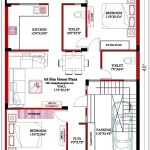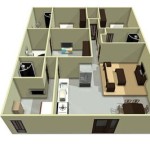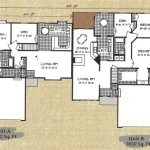Building a Home Project Plan
Building a home is a complex undertaking requiring meticulous planning and execution. A well-defined project plan serves as the roadmap for this journey, ensuring the process stays on track, within budget, and meets the desired quality standards. This article explores the essential components of a comprehensive home building project plan.
Initial Phase: Defining the Scope and Objectives
The initial phase lays the groundwork for the entire project. It involves defining the scope, establishing clear objectives, and setting realistic expectations. Key elements of this phase include determining the desired house size, style, and features. Budgetary considerations are crucial at this stage. A preliminary budget should be established, outlining estimated costs for land acquisition, construction materials, labor, permits, and contingency funds. This preliminary budget will be refined throughout the planning process.
Site Analysis and Selection
Choosing the right location is paramount. Site analysis involves evaluating potential sites based on factors such as accessibility, topography, soil conditions, and availability of utilities. Local zoning regulations and building codes must also be considered. A thorough site analysis ensures the chosen location is suitable for the intended construction and minimizes potential problems later in the project.
Design and Blueprint Development
The design phase translates the vision into a tangible blueprint. Working with an architect or designer is essential for creating a functional and aesthetically pleasing home design. The blueprints detail the layout, dimensions, structural elements, and specifications of the house. This phase also includes selecting materials, finishes, and fixtures. Detailed blueprints are crucial for accurate cost estimations and effective communication with contractors.
Pre-Construction Phase: Permits and Financing
Securing necessary permits and finalizing financing are critical pre-construction steps. Building permits are required to ensure compliance with local building codes and regulations. This phase involves submitting detailed plans and specifications to the relevant authorities. Simultaneously, financing arrangements should be finalized. This may involve securing a construction loan or utilizing other funding sources.
Contractor Selection and Bidding
Choosing the right contractor is vital for successful project execution. Potential contractors should be thoroughly vetted based on their experience, reputation, and licensing. A bidding process allows for comparing quotes from different contractors and selecting the most suitable option. Contracts should be clearly defined, outlining the scope of work, payment schedules, and project timelines.
Construction Phase: Monitoring and Management
The construction phase is where the project takes physical form. Regular monitoring and effective management are essential to ensure adherence to the project plan. This involves tracking progress against the schedule, managing resources, and addressing any unforeseen issues. Regular communication with the contractor is crucial for maintaining transparency and resolving any challenges promptly.
Project Timeline and Scheduling
A detailed project timeline provides a roadmap for the entire construction process. It outlines the sequence of activities, estimated durations, and key milestones. A well-defined schedule helps ensure the project stays on track and allows for proactive management of potential delays. Flexibility within the schedule is important to accommodate unforeseen circumstances.
Budget Management and Cost Control
Effective budget management is essential for staying within financial constraints. Tracking expenses, comparing actual costs against the budget, and managing any cost overruns are crucial aspects of this process. Contingency funds should be allocated to address unforeseen expenses or changes in the project scope.
Quality Control and Inspections
Maintaining quality throughout the construction process is crucial. Regular inspections are necessary to ensure adherence to building codes, quality standards, and design specifications. Inspections should be conducted at various stages of construction, including foundation, framing, electrical, plumbing, and final walkthroughs. Proper documentation of inspections is crucial for maintaining a record of compliance.
Communication Plan
Effective communication is essential for a successful building project. A communication plan outlines how information will be shared between all stakeholders, including the homeowner, architect, contractor, and subcontractors. Regular meetings, progress reports, and clear communication channels help maintain transparency and facilitate timely decision-making.
Risk Management and Contingency Planning
Construction projects are inherently subject to risks. A risk management plan identifies potential risks, assesses their likelihood and impact, and develops contingency plans to mitigate these risks. Common risks include weather delays, material price fluctuations, and unforeseen site conditions. Proactive risk management helps minimize disruptions and keeps the project on track.
Post-Construction Phase: Final Walkthrough and Handover
The post-construction phase involves a final walkthrough to ensure all work is completed according to the contract and meets quality standards. This is an opportunity to identify any deficiencies that need to be addressed before the final handover. Upon completion, the contractor hands over the finished project to the homeowner, along with all necessary documentation, warranties, and manuals.

Home Building Process Project Planning Armchair Builder Blog Build Renovate Repair Your Own Save Money As An Owner

Home Renovation Project Plan 10 Examples Format

House Plans How To Design Your Home Plan

Remodel Project Plan Template Luxury The 2024 17 Bud Governor S State Fice Bui House Renovation Projects Business Example Management Templates

A Sample Microsoft Project Construction Schedule B4ubuild Com

Home Remodel Planner Remodeling Budget Project Interior Design Google Sheets Building House Planning Excel Spreadsheet

Home Renovation Project Plan Template Inspirational Oconnorhomesinc Plans House Projects Planning

Architectural Project Plan Template Example Milanote

Creating A Functional Home Using Chief Architect For Efficient Space Planning Chiefblog

Accurate Scheduling Is Key To Better Manage Your Home Building Or Remodeling Project


